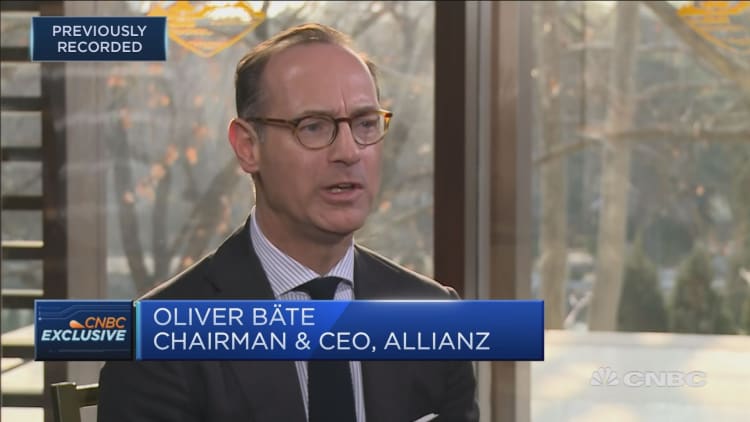
A "more severe" stock market correction lies ahead, according to the head of Allianz.
"Equity markets have really been buoyant for a long time now and valuations are extremely high, higher than you can actually justify based on fundamentals," Allianz Chief Executive Oliver Bate told CNBC Saturday at the China Development Forum in Beijing.
"Markets are starting to get jittery and we would expect a more severe correction over the medium to long term," he said.
Although Bate said the exact timing of such an event remained to be seen, he added that his Munich-based financial services firm believed market risk was "severely mispriced" and was being "very, very careful" as a result.
Bate has warned previously of dangers ahead in the market. In January, the Allianz chief told CNBC it was "absolutely clear" that a correction in the markets would happen.
Several weeks after his comments, in early February, stock markets stateside fell more than 10 percent from recent record highs, with major U.S. and global stock indexes moving into correction territory.
Meanwhile, fears of a potential trade war breaking out following recent moves from the U.S. that would implement tariffs on up to $60 billion worth of Chinese imports have also not alleviated the situation. Beijing, for its part, has proposed a list of 128 U.S. products, worth around $3 billion in 2017, that it could potentially target as a response to earlier U.S. steel and aluminum tariffs.
"It's certainly not helping to stabilize markets," Bate said.
Trade-related investor concerns saw the Dow Jones industrial average close in correction on Friday, with the 30-stock index falling 5.7 percent for the week. Asian and European markets also fell last week as markets digested the possibility of elevated trade tensions ahead.


